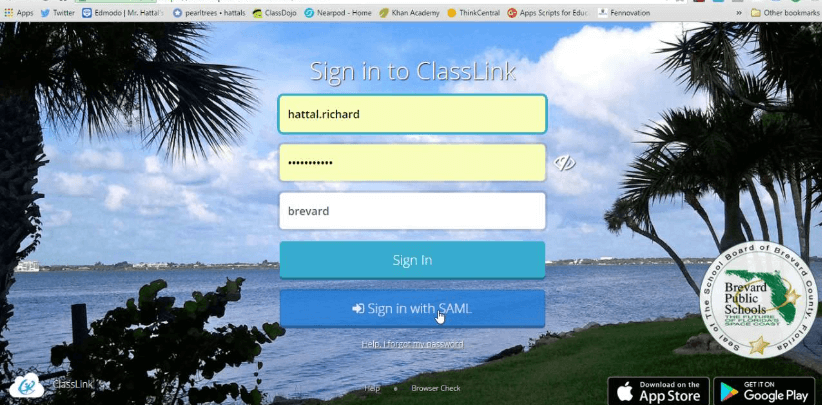Table of Contents
In a world where technology advances with each passing day, the ability to understand and create software becomes a key skill for future generations. Learning programming from an early age opens doors for children into a world filled with creativity, innovation, and endless possibilities. CodaKid, a leading online platform for teaching children coding, plays a vital role in preparing young minds for this exciting and ever-evolving world. In this article, we share inspiring success stories that demonstrate how early programming education can shape a child’s future and open up new horizons.
Why Start Learning Programming at an Early Age
Learning programming from an early age does not just prepare children for future career opportunities; it forms a set of important skills that will be useful in any sphere of life. Here are some key benefits of programming education for children:
-
Development of Logical Thinking and Problem-Solving: Programming teaches children to break down complex tasks into smaller, manageable parts, thereby developing their analytical thinking and problem-solving capabilities.
-
Stimulation of Creativity and Innovation: By creating their own projects and applications, children learn to express their ideas through code, fostering their creative potential.
-
Improvement of Self-Confidence and Social Skills: Working on projects, children learn to present and discuss their ideas with others, strengthening their self-confidence and developing communication skills.
-
Preparation for Future Careers: In a world where technology is central to most professions, having programming skills opens up broad career prospects and gives a significant advantage in the job market.
CodaKid understands these benefits and offers exciting, interactive courses that motivate children to learn and grow. With our platform, we aim not only to teach children coding but also to inspire them to become creators of their own future.
Success Stories

Story 1: Child Programmer Becomes Game Developer
Jacob always dreamed of creating his own video games but didn’t know where to start. Everything changed when he began learning programming at the age of 10. Starting with the basics of Python, he quickly moved on to game development. With each project, his skills grew, and soon he created his first full-fledged game. This project not only brought him satisfaction from creativity but also encouraged him to continue learning, ultimately leading to an internship at a game studio at 16. Today, Jacob works on developing mobile games, turning his passion into a profession.
Story 2: Girl Creates App to Solve Social Issue
Sara began learning programming at the age of 12, aiming to use her new skills to solve real-world problems. Inspired by the desire to help homeless animals in her city, she developed an app that allows people to report homeless animals in need of assistance. The app quickly gained popularity and helped save hundreds of animals, easing the work of local shelters. Sara’s project showed how even at a young age, one could use technology to create meaningful changes in society.
Story 3: From School Project to Startup
Alina and Mark, siblings, first encountered programming in a school robotics club. Together, they developed an app for organizing school homework and schedules. Originally intended as a project to help themselves and their friends, their app quickly became popular at school. Encouraged by this success, they turned their idea into a startup. Now, their application is used in many schools across the country, helping students stay organized and improving their academic performance.
These stories are just a few examples of how early programming education can unlock children’s potential and set them on the path to success. They show that children are capable of amazing achievements when they receive support, resources, and the opportunity to explore technology.
Supporting Early Programming Education
Learning programming at an early age opens up a world of opportunities for children, but how can parents and teachers support their interest and development in this field? Here are some tips on motivating and supporting young programmers on their learning journey.
Creating an Inspiring Environment
-
Interactive Tools and Resources: Use online platforms and apps designed for children to make learning programming fun and interactive.
-
Projects Based on Interests: Encourage children to choose projects that match their interests, whether it be video games, animation, or social apps.
Providing Access to Educational Resources
-
Programming Courses and Camps: Encourage participation in educational programs and camps where children can learn programming among peers and under the guidance of experienced mentors.
-
Online Communities: Connecting to online programming communities can provide additional resources and support from like-minded individuals.
Encouraging Creativity and Experimentation
-
Personal Projects: Encourage children to implement their own ideas in projects, which helps develop creative thinking and learn from their own experience.
-
Celebrate Achievements: Celebrating achievements, even small ones, can significantly boost motivation and self-confidence.
Support and Engagement
-
Participation in the Learning Process: Parents can learn the basics of programming with their children to better understand their interests and provide support.
-
Educational Resource Providers: Choose quality educational resources and platforms that offer structured courses and support along the learning journey.
Engaging in programming education from an early age helps children not only to master valuable skills but also to develop confidence in their abilities. Creating a supportive environment where children can explore, experiment, and express their creative energy is key to developing the next generation of innovators and technology leaders.
Starting Programming Education with Accessible Resources
Beginning the journey into the world of programming for children might seem daunting, but with the right resources and approach, it becomes an exciting adventure. Here are some steps and recommendations for making the first steps in programming education easy and effective.
-
Choosing the Right Learning Platform
Research and select educational platforms, like CodaKid, that offer programming courses specially designed for children. These platforms should provide interactive lessons, visual programming, and projects that match the child’s age and interests.
-
Start with the Basics
For children, it’s better to start with the basics of programming using visual programming languages like Scratch or Blockly. These tools allow children to easily grasp programming concepts without diving into the complexities of text-based language syntax right away.
-
Set Realistic Goals
Help your child set realistic goals and celebrate achievements as they progress. This could be developing a simple game, creating an animation, or solving a specific problem with codeing.
-
Provide Support and Mentorship
Having a mentor or joining a group of like-minded individuals can significantly enhance the programming learning experience. It gives children a chance to share their successes, ask questions, and receive support.
-
Practice and Patience
Programming is a skill that requires practice and patience. Encourage your child to keep practicing, even when they face difficulties, and remind them that every mistake is an opportunity to learn and grow.
In conclusion, learning programming from an early age opens doors for children to a future filled with creative possibilities and career growth. Through success stories, we see how early engagement in the world of technology can shape life trajectories and inspire the creation of something new and meaningful. By creating a supportive environment, choosing the right educational resources, and encouraging practice and patience, parents and teachers can play a key role in the development of future innovators and technology leaders.
Remember, every child is unique, and each one’s journey into the world of programming will be different. Value and support their unique interests and passions, as these will be the foundation of their future achievements. Your support and inspiration can be the catalyst that helps your child unlock their full potential in the world of technology.















